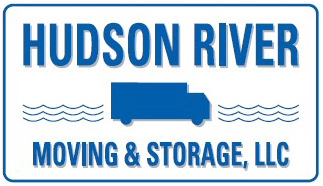5 Reasons Employees Shouldn't Do the Work of Closing a Location

Have you made the hard decision to permanently an office location? Perhaps you're contracting your business or purchasing another business with redundant features. Or maybe it's just no longer a profitable part of your company. Whatever the reason, there is much work to be done now.
How much of that work to actually close this site should your employees do? The answer is usually very little. Why? Here are a few of the most important reasons to outsource the closure rather than have employees handle it.
1. You're Liable for Employees
The last thing you want right now is a workers' compensation headache. But if you have employees doing the heavy lifting, this is what's likely to happen. The liquidation, disposal, and moving of furniture and equipment is a dangerous job. People can easily be injured if they don't know what they're doing. Instead, professional movers are trained to avoid hazards and injury, and they're covered by their own insurance.
2. Employees Should Move Forward
Depending on the reason that the space is being closed, you may want to shift some or all of its staff to other locations as soon as possible. The longer that employees spend working on closure tasks in the shrinking physical site, the worse it can be for morale. Get those employees busy in forward-thinking activities and let professionals get rid of their old workspaces and clean up the site for its new users.
3. You Need to Close Out Payroll
Unfortunately, closing a site often means letting employees go. Whether you're completely closing and terminating everyone or relocating some to other sites, it's time to finalize and clear up payroll for this location. This is very important because payroll and payroll tax obligations must be handled correctly—or you'll create more problems for yourself with the labor boards and tax agencies.
The advantage of outsourcing the labor as you get closer to the actual closure is clear. The professional moving service is one bill you owe with no payroll obligations. They handle the messy end of things while you streamline one of your biggest and most final expenses.
4. Liquidation Is a Skill
Have you ever had to liquidate an office space before? If this is a new or unfamiliar task, you may be surprised how complex it is.
If closing a business, for instance, you may owe a duty toward creditors to get the best price you can for the company's remaining assets. Some may be more challenging to inventory or find the right market for. Furthermore, not everything can be disposed of in one end location. Charitable donation is a good choice so you can take the tax deduction, but that's another extra step you'll have to take on.
As with any task for which you and your people are not trained, the smartest move is to work with those who are.
5. Everyone May Be Emotional
Finally, don't overlook the emotional aspect of this closure. You and your staff may have strong feelings that could easily make the job harder and more upsetting—or even unsafe. It could represent a business failure, employees may need to leave the company or relocate, or you might just find it bittersweet to leave a cherished location.
Don't let emotion make people clumsy or careless, and don't let it overwhelm your business interests. Hire a disinterested third party who will focus on the work at hand and not the baggage behind it.
Do you need to liquidate an office in the New York City area? If so, learn how Hudson River Moving & Storage can help. We'll work with you to identify the best ways our services can take the pressure and risk off you. Call today to make an appointment or learn more.

